The college library is a well-equipped resource center housing over 25,000 books covering a wide range of academic subjects, reference materials, and competitive exam guides. It supports students and faculty across all departments by providing access to textbooks, encyclopedias, journals, and periodicals. The collection is regularly updated to include the latest editions and research publications. In addition to physical books, the library also offers access to e-books and digital databases. With quiet reading zones, computer terminals, and helpful staff, the library fosters an environment conducive to focused study and research, making it an essential pillar of the college’s academic infrastructure.

A college laboratory is a dedicated space designed to facilitate practical learning and hands-on experiences across various academic disciplines. It typically includes subject-specific labs such as mathematics, where students engage in analytical exercises and use mathematical tools to deepen conceptual understanding; science labs, which support experiments in physics, chemistry, and biology; and social science labs, equipped with resources like charts, maps, and statistical tools to analyze human behavior and societal structures. Arts and craft labs provide creative spaces with materials for design, painting, and sculpture. Psychology labs allow students to conduct experiments, administer tests, and observe behavioral patterns in controlled settings.
Maths Lab
Science Lab
Social Science Lab
Art & Craft Lab
Psychology Lab

It includes hardware (computers, printers, routers), software (applications, operating systems), internet access, and communication tools (email, video conferencing). These facilities support learning, business operations, data management, and communication. In schools, ICT facilities enable digital learning and computer-based teaching. In businesses, they improve productivity and remote collaboration. Key components also include technical support and cybersecurity measures. ICT facilities are essential for efficient work, education, and connectivity in today's digital world. Their quality and availability significantly impact performance and innovation in any organization.

A college canteen is a common facility that provides food and refreshments to students, faculty, and staff. It serves as a social and relaxation space where individuals can gather during breaks. The canteen typically offers a variety of meals, snacks, and beverages at affordable prices, catering to diverse tastes and dietary preferences. It maintains hygiene and cleanliness standards to ensure safe food consumption. Beyond being a place to eat, the canteen also fosters interaction among students from different departments, contributing to a vibrant campus life. Its convenient location and accessibility make it an essential part of the college infrastructure.
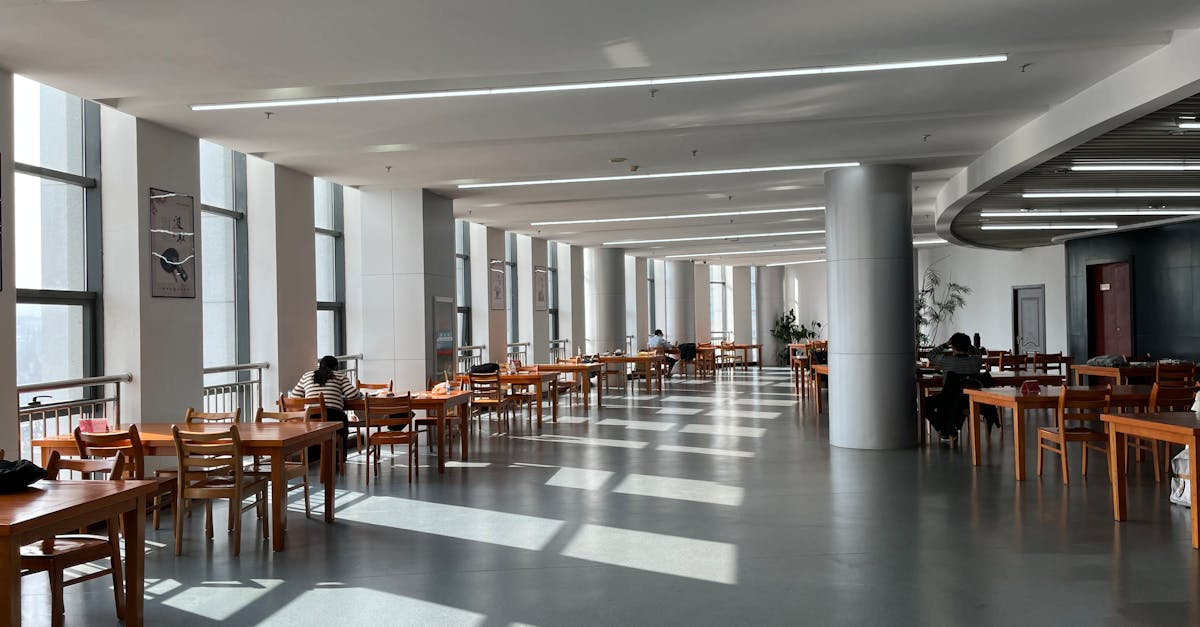
A Multi-Purpose Hall (MP Hall) in a college is a versatile indoor space designed to host a variety of academic, cultural, and extracurricular activities. It is commonly used for seminars, workshops, guest lectures, cultural programs, indoor sports, and official gatherings. Equipped with audio-visual systems, seating arrangements, and stage facilities, the MP Hall provides a centralized venue for large-scale events and student functions. It plays a key role in promoting co-curricular engagement and fostering a sense of community on campus. The flexibility of the space allows it to adapt to the diverse needs of college events and programs.
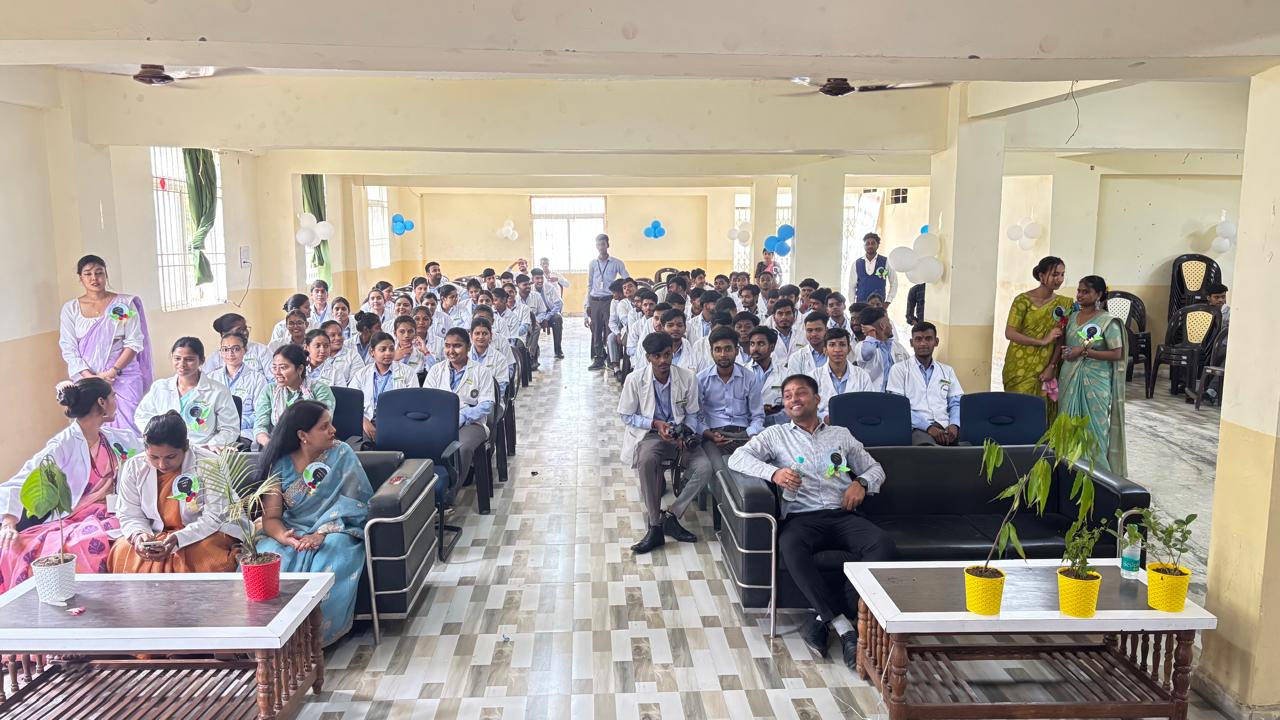
A seminar hall in a college is a well-equipped space designed for conducting academic sessions such as seminars, conferences, workshops, guest lectures, and presentations. It typically features comfortable seating, modern audio-visual equipment, projectors, sound systems, and internet connectivity to facilitate effective communication and learning. The seminar hall provides an ideal environment for intellectual exchange, where students and faculty can engage in discussions, share research, and interact with experts. Its formal setting supports professional and academic development, making it an important facility for enhancing the overall educational experience on campus.
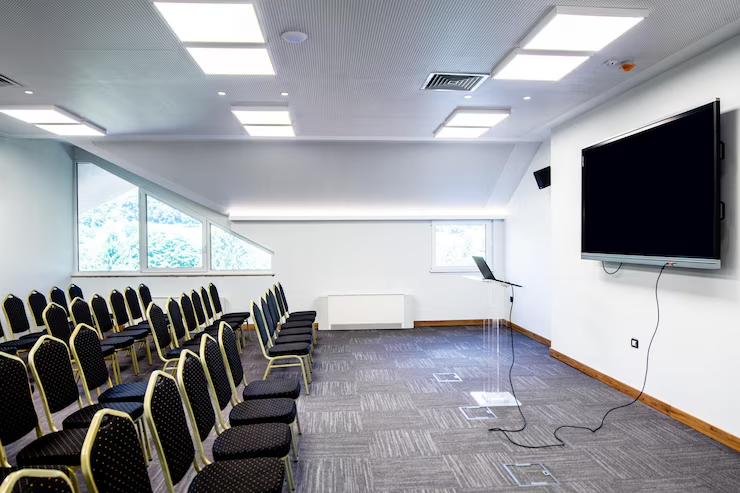
Girls' and boys' common rooms in a college are designated spaces that provide students with a comfortable area to relax, interact, and take breaks between classes. These rooms are usually furnished with seating arrangements, tables, newspapers, and sometimes indoor games or recreational facilities. They serve as informal gathering spots where students can unwind, socialize, or engage in group discussions. The common rooms are also intended to offer privacy and personal space, especially in co-educational institutions. Maintaining a calm and welcoming environment, these rooms contribute to the overall well-being and social interaction of students on campus.
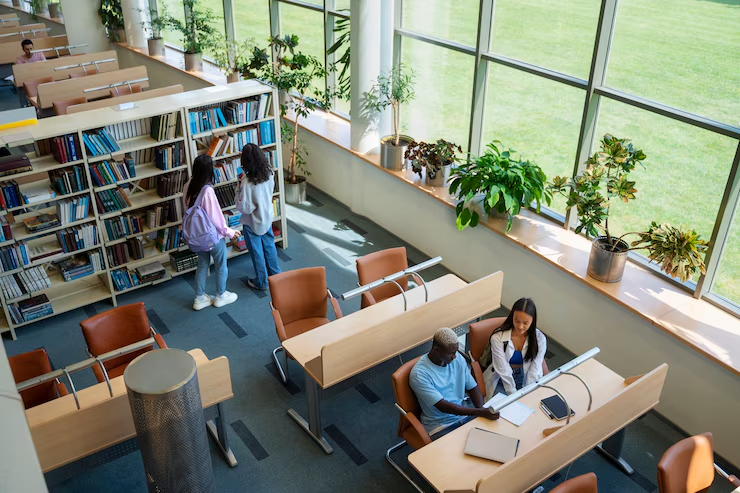
An open outdoor area designated for sports, physical activities, and recreational events. It provides facilities for games such as football, cricket, volleyball, athletics, and other outdoor sports. The playground plays a vital role in promoting physical fitness, teamwork, and a healthy lifestyle among students. It also serves as a venue for sports meets, tournaments, and cultural gatherings. Regular use of the playground encourages students to engage in extracurricular activities alongside academics, contributing to their overall personality development. Well-maintained and spacious, the playground is an essential part of the college’s physical education infrastructure.

The college provides a high-speed Wi-Fi facility across the campus, including in classrooms, the library, laboratories, and common areas. This service ensures that students and faculty have uninterrupted internet access for academic, research, and communication purposes. In the library, it enables easy access to digital resources and online study materials, while in laboratories, it supports the use of software tools and cloud-based applications. The campus-wide Wi-Fi enhances the learning environment by facilitating e-learning, online collaboration, and virtual lectures, reflecting the college's commitment to integrating technology into education.

The college provides clean and hygienic drinking water facilities through strategically placed water coolers across the campus. These coolers ensure a constant supply of chilled, safe drinking water for students, faculty, and staff, especially during the hot summer months. Each unit is regularly maintained and sanitized to meet health and safety standards. Located in academic blocks, hostels, and common areas, the water coolers are easily accessible and help promote well-being by encouraging regular hydration. Their presence reflects the college’s commitment to providing a comfortable and student-friendly campus environment focused on health and basic amenities.
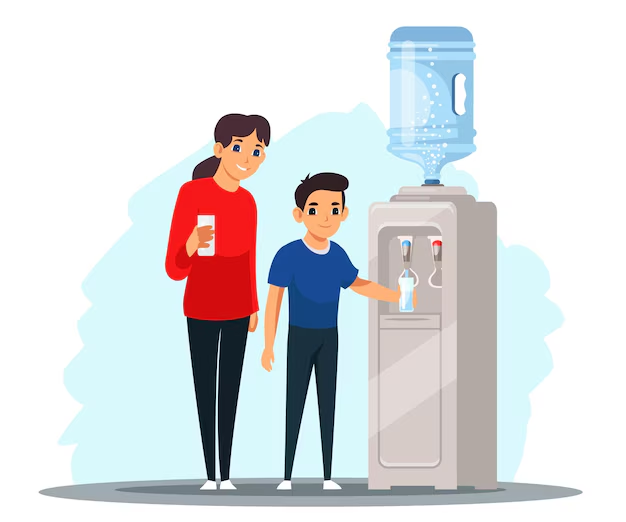
The college offers a reliable and well-organized transport facility to ensure safe and convenient commuting for students and staff. A fleet of buses covers major routes across the city and nearby towns, making it easier for day scholars to reach the campus on time. Each bus is equipped with comfortable seating and is operated by trained drivers and support staff. The transport service is punctual, affordable, and maintained regularly for safety and cleanliness. Special transport arrangements are also made for industrial visits, field trips, and other academic events, reflecting the college’s dedication to accessibility and student convenience.
